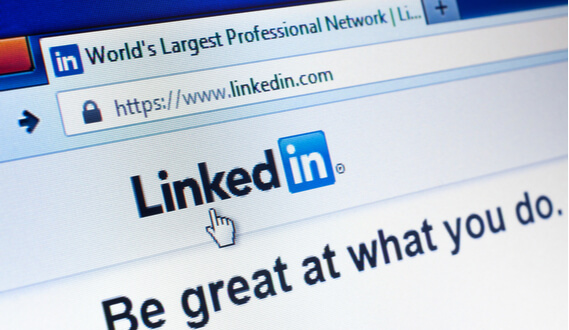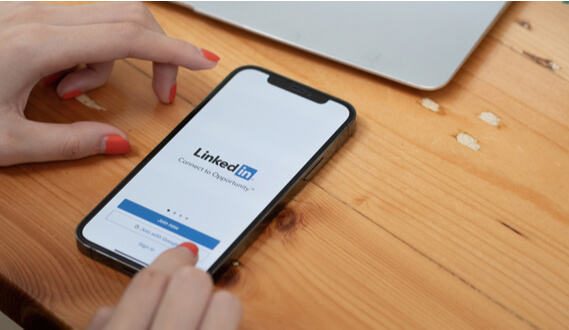Many job seekers wonder what questions to ask in an interview. It’s good to remember that a job interview is a two-way street. It’s a discussion between you and the interviewer(s) to see not only if you are a good fit for the company but if the company is a good fit for you!
Many assume an interview is about the hiring manager asking the candidate questions and not about interview questions to ask the employer. However, asking informed and intelligent questions is your opportunity to be memorable, show that you care and demonstrate that you took the initiative to perform research and are genuinely passionate about the opportunity.
With the above in mind, the hiring manager may ask, “Do you have any questions for us at the end of an interview?” and this can be your make-it or break-it moment.
What are Some Good Interview Questions to Ask?
Interview questions can be very versatile. You will write out a list of questions to ask in an interview that hit on topics that showcase that you are aware of the organization, the role you are up for, the culture, and how you sincerely care about their success and are aware of their pain points. See below for some powerful questions to ask across various topics.

What to Ask at a Job Interview
Questions to ask about a new job that show your interest in the role include:
- Is this a newly created position, or would I be replacing someone?
It’s good to understand the context behind the need to fill this role. Is this position created because the company is growing, or was it vacated because the person left (resigned, terminated, laid off) or was promoted?
- What can I do in this role to help the team or company achieve the vision or drive innovation?
This question shows that you are a future-facing go-getter. You care about their vision/mission, and you understand that every company needs innovation for business growth, to stay ahead of their competition, and to take advantage of the evolving technological world we live in!.
- What are some examples of great results accomplished by a person in this job?
Remember that YOU are interviewing THEM. You want to know that they acknowledge success, that they aren’t asking for the impossible, and their answer can help you gauge what is expected of you.
- What goals would you like to be met in the first 30/60/90 days on the job?
This will help you identify their high-level priorities. Asking this question also showcases how you want to understand their pain points and be useful in tackling challenges.
- What does a typical day in this position look like?
You’re not just looking for any job, you care about finding the right fit and inquiring can help you understand how the new role approaches tasks and manages them effectively. The interviewer’s answer should give you a good sense of the business or office environment and how the team operates.
Questions to Ask About a Job Offer That Displays Your Interest in More Than Just the Role Alone:
- Are there annual reviews?
You are investigating how your work is analyzed. Receiving positive (or negative) feedback is important for your motivation and growth. This type of probe also helps the interviewer understand that you value environments that focus on incentives, goal attainment, constructive criticism and a sense of purpose.
- What happens if an employee hits all their goals/completes all their milestones and then achieves even more?
While it may be a difficult topic to bring up because you are inquiring about recognition, raises, or promotions, this is not seen as rude or aggressive. It may be out of your comfort zone initially, but if the interview is flowing nicely, this topic will organically come to light. You are simply looking into efforts the company has provided to help in professional development and growth through education or experience opportunities.
- What is the compensation structure for the role?
This question pinpoints understanding their culture and if it’s a match for you. They may be very transparent and let you know that they don’t invest in raises or promotions – and that may be what you need to decide if this role is worth the time and effort.
- What other teams or departments should someone in this role expect to work with?
Revealing that you are collaborative is critical as most jobs require people who can quickly develop rapport and work effectively with cross-functional teams. Additionally, showcasing that you can partner with individuals from diverse educational, professional, cultural and socioeconomic backgrounds provides a well-rounded and versatile view of your communication skills.
Questions to Ask About a Company to Show That You are Interested In Being a Part of Their Corporate Culture.
- How do you see the company developing over the next 5 to 10 years?
You are trying to gain a better understanding of the organization’s future goals and how they align with the role. This question also gives off the impression that you are planning on sticking around for the next 5-10 years to see these goals come to fruition.
- What do you personally like about working for this company?
Seeking their perception on their likes of the values of the company not only makes you super personable, but it gives you clues on how the company defines success, business insights and/or their general management style. If they seem genuinely happy and passionate about working there, you may be more inclined to lobby for that role or company over others.
- Who is the company’s greatest competitor and what can I do in the role to help you beat them?
This shows that you’ve done your homework and put in the time and effort to understand the company’s gaps and future goals. Asking an interviewer their competitive analysis thoughts may immediate start to show you as an ally. Once they think you’re on their team they may put more thought into how your value sets you apart from other candidates.
- How does the company encourage professional growth?
Most people aren’t looking for a dead-end job, so this question is completely valid. You are interested in expanding your skill set or experience portfolio so understanding how a company may be able to ignite your passion and curiosity for your work outside of attaining your specific goals is key to identifying if the company is a good fit for you!
Follow-up Questions You Should Ask In an Interview:
- Do you have any concerns about my candidacy or having me move forward in the process?
The interviewer may not be expecting this question, but it’s a great request to receive insight into if you are missing a key qualification that they are nervous about. If they do bring it up, you can combat their concerns right there in the interview or during your Thank You email.
- Do you think that my previous achievements and future goals would translate well into this role?
Finding out if they think you have what it takes is an optimal way to gauge their interest. They may disclose information in this answer that can better help you articulate these achievements in follow-ups or even other interviews with different companies.
- When are you interested in having this position filled?
You always want to leave knowing a general timeline for optimal follow-up. If they tell you “immediately” vs. “about two months,” – you can come up with a follow-up strategy and understand when you may hear from them next, which helps your stress and anxiety.
How Many Questions Should I Ask In an Interview?
You can count on asking about 3 to 5 questions. You want to be more prepared than what is actually needed, so bring a list of 10+ questions. But be aware not to duplicate efforts and ask a question that has already been answered. Use your emotional intelligence and memory, so you do not ask redundant questions.
At the stage where you are having a more in-depth interview (after a typical phone screen), you’re looking at an interview that should be 30 – 60 minutes long.
While keeping an eye on the time (you do not want to go over the allotted time), about 3-5 questions are optimal. You want to be insightful and show your interest, but you also want to be cognizant of their time. If time is up and you do not get to all your questions, feel free to ask them in your Thank You note or follow-up email.
Additional Good Interview Questions to Ask That May Be More Personal to You:
- What is the work/life balance model at your company?
- Is it possible to work remotely throughout the week?
- How did your company handle Covid?
If you do not have any questions for them, it can be perceived that you’re not enthusiastic or too uninterested to care, so don’t fear speaking up. Go for it and ask questions to demonstrate your genuine interest and the ability to source fresh perspectives.


